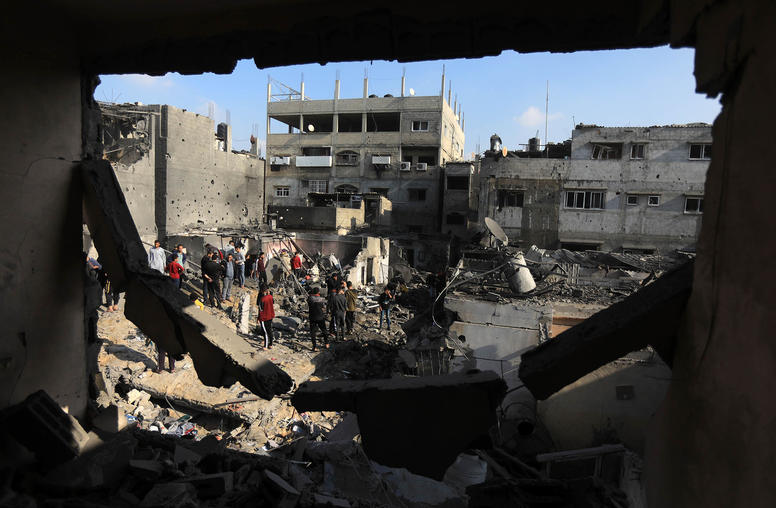The Dual Narrative Teaching Process: Palestinians and Israelis Learning the Historical Narrative of the Other
In 1998, Professor Dan Bar-On of the department of behavioral sciences at Ben-Gurion University and Professor Sami Adwan, a lecturer in education at Bethlehem University, founded the Peace Research Institute in the Middle East (PRIME). Their mission has been to create a series of workbooks, the third volume of which is to be published shortly, presenting the central historical narratives of Israelis and Palestinians side-by-side. The books are meant to help secondary school students understand the complexity and contentiousness of their history and help expand their awareness of the "other." Each page in the workbook is divided into three sections of equal size: the Israeli narrative on the right, the Palestinian on the left, and in the middle, empty lines for students to write their own reactions to the historical narratives.
Professors Adwan and Bar-On, who are currently Fulbright Scholars in Residence at Monmouth University in New Jersey during the 2007 spring semester, will lead a workshop that reflects the process of developing jointly such a Palestinian-Israeli educational product. They will work with participants through role-play and discussion to show the challenges of dealing with contested history and controversial issues and provide insights on how to teach about the Israeli-Palestinian conflict. At the end of the workshop, a few education experts and teacher trainers will reflect on this unique educational process and discuss lessons learned and best practices from other global examples of teaching about the past and about controversial topics.
Agenda
Some participants will play roles while others will be observers of the narrative process.
10:00 - Introductions
10:30 - Introduction of PRIME History project and establish Palestinian and Israeli roles and ground rules for Role Play Exercise
11:00 - Meetings of uni-national groups to work on composing their narratives
11:35 - Coffee Break
11:45 - Bi-national meeting: Groups will present their narratives to each other
12:15 - Working Lunch: Uni-national groups to discuss their narratives again after listening to the other side’s narrative
12:45 - Bi-national meetings: Groups will present their narratives to each other a second time
1:15 - Video of PRIME process
1:45 - Lessons learned from the role play exercise. Discussion for participants and observers to contextualize the experience by drawing on their own teaching and education experiences
2:30 - Break
2:45 - Panel Discussion
The challenges of teaching about a contested past and controversial issues and the importance of teacher training.
- Alison Milofsky
Education Program, U.S. Institute of Peace - Karyna Korostelina
Institute for Conflict Analysis and Resolution, George Mason University - Paul Scham
Middle East Institute and co-editor of Shared Histories: A Palestinian-Israeli Dialogue
3:45 - Conclusion



